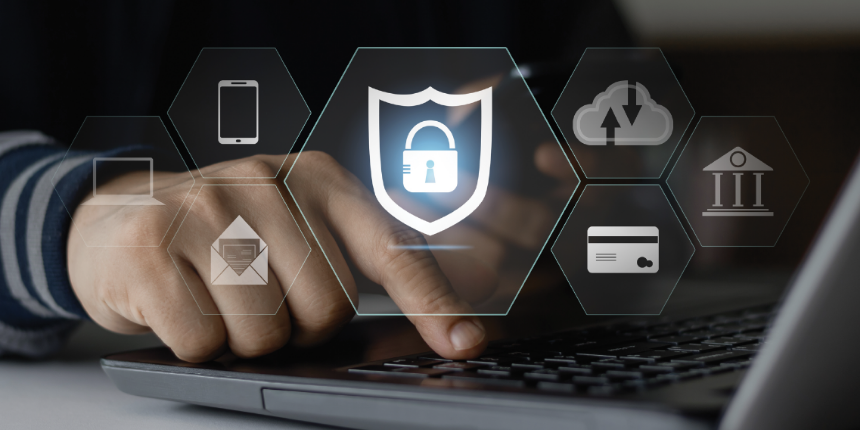Making Fraud Protection a Priority
Fraud will remain the transportation industry’s biggest challenge this year. In this roundtable discussion, logistics leaders provide insight into rampant freight fraud and offer tips on protecting your business.

One topic that will continue to be on the radar in the new year is freight fraud. As the transportation industry experiences losses of $1 billion-plus annually, industry leaders are modifying their operations to mitigate the cost fraud has on their businesses.
We spoke to three leaders on the TIA Fraud Task Force who shared their perspectives on fraud in the industry:
Themes around the financial and reputational costs to your business and the importance of protecting yourself emerged among these leaders as they discussed the far-reaching impact of fraud in the year ahead.
Why is fraud such a huge topic of concern for the 3PL industry? What is to blame for rising threats?
DO: The primary reason for the heightened level of concern for the industry is the dramatic increase in frequency and variance in the types of fraud observed by TIA membership and the sector as a whole. Our current estimate is the cost to the industry, and ultimately the broader economy, is in excess of $1 billion.
SJ: Fraud is a significant concern due to its financial and operational toll on companies, affecting the entire supply chain, including consumers, as this contributes to the prices they pay.
ZB: Beginning in the second half of 2022, the industry experienced a significant shift from straight cargo theft and traditional double broker scams to more sophisticated fraud-based strategies to double broker and steal the cargo. Because of this, many shippers that had never experienced a cargo theft now have. The supply chain crisis caused by the pandemic brought global attention to the logistics industry.
Further, the digital transition in the 3PL industry has introduced new vulnerabilities. Cyberattacks on shipping manifests and booking systems have become prevalent, allowing sophisticated fraudsters to exploit weaknesses in digital processes, carrier registrations and online platforms. As brokers adopt more digital tools, the risk of fraud rises, necessitating proactive digital mitigation strategies.
How can fraud impact your business’ reputation and financials?
DO: Fraud, in all its forms, can deeply impact both a business’ finances and reputation. On the reputational side, this can cause significant damage to the company’s legitimacy in the industry from the perspective of shippers, factoring companies and carriers. From a financial perspective, cargo loss because of theft and double brokering can affect a company’s bottom line.
SJ: Specifically, regarding cargo theft, there are two kinds: straight (theft during transit) and strategic (theft by deception). In the first quarter of 2024, there was a 46% increase in theft over the first quarter of 2023, according to data released by CargoNet. There were 925 incidents reported to CargoNet in the first quarter of 2024, a 10% increase over the fourth quarter of 2023. CargoNet reports $154.6 million in stated value, with the average value of a stolen load at $281,757. From the first quarter of 2022 to the fourth quarter of 2023, there was a 1,445.83% increase in strategic theft.
ZB: Reputational loss also equates to hard losses. Year to date, more than $140 million in losses have been reported because of cargo theft in the U.S. Compounded with insurance implications and opportunity cost of managing and responding to these issues, there are serious consequences for letting threats go unanswered. The repercussions of cargo theft and fraud extend far beyond immediate financial losses, impacting various facets of shipper-broker business operations and relationships.
How can businesses protect themselves from fraud? What are the steps they need to take?
DO: The first step to take is to raise the level of awareness, education and vigilance at the business level. All employees at 3PL companies should be fully aware of the scope of the problem and be educated on red flags to look out for.
Carrier vetting is critical. Researching companies is also important. KYC: Know your carrier. Do they have a principal place of business? How long have they been in business? When did their Motor Carrier number change ownership?
You can implement processes into your workflow, which will prevent mistakes in selecting carriers, such as how to avoid phishing attempts. These are all critical steps.
SJ: Use only rigorously vetted carriers. Some cargo theft is self-inflicted and preventable with vigilance. Slow down for new carrier reviews.
Lean into technology, such as Al-driven analytics. For example, analyzing operational patterns and flagging anomalies to detect irregularities that can indicate fraudulent activities or analyzing carriers’ electronic logging device (ELD) data. If we see a carrier that typically operates in the Southeast suddenly request load from Oregon to Washington, deviation could signal identity theft or another scheme.
ZB: Everyone needs to be vigilant when onboarding new carriers, but monitoring your existing carriers for indications of being compromised is also hugely important. Work with your shippers and customers on best practices that can prevent cargo theft.
And beyond all else, become active in the theft prevention community. Very good intel and relationships are built this way. Being proactive is so important to get ahead of new fraud schemes. As a counterpart in the cargo theft community likes to say, “You don’t want to start digging a well when you’re thirsty.”
Why is it important for members to build relationships with local law enforcement and their Congressional delegation before an emergency happens?
DO: The biggest reason is to limit the lead time between suspicion that an incident has taken place and actually reporting the incident. Timing is critical. Knowing who to report an occurrence to is especially important.
SJ: Law enforcement can help disrupt criminal operations and help recover stolen loads. Building these alliances proactively can help make sure your case gets the attention it needs when a rapid response is needed. Sometimes it can be challenging because [the theft] can be dismissed as a civil matter; relationships help. That said, proactive engagement can lead to significant recoveries. For example, MODE was recently involved with a theft ring involving dozens of brokers and 50 stolen shipments. All three of their loads were successfully delivered, in part, because of this cooperation.
ZB: Law enforcement is key to recovery when an incident happens. If you have strong relationships with law enforcement and know who to call, they can help you through the process-from filing a report to recovery. Law enforcement also works on operations to investigate and shut down at-large crime organizations behind these schemes.
“The repercussions of cargo theft and fraud extend far beyond immediate financial losses, impacting various facets of shipper-broker business operations and relationships.”
Zak Bowyer
Even with preventive measures in place, fraud can still happen. What should you do if a problem does arise?
DO: This is a very good question, and one that we have addressed at the task force level this year. One of our new initiatives is to create and distribute to members a “Co-ncident/Post-Incident Checklist” for all three main categories of fraud:
1. Cargo theft
2. Identity theft
3. Unauthorized double brokering
The intention is to arm the community with a road map of precisely what to do if an incident does take place. It is our hope that, armed with this critical information, 3PLs will be able to remediate in a timely manner, minimize damage and hopefully catch the culprits.
SJ: Make sure to assess the situation/theft type. Is it traditional theft, a fictitious pickup or another form of theft? Each requires a different response strategy. Assess whether the company could or should have caught the situation earlier, so that you can take immediate steps to prevent it from happening again. Educate the team on how to recognize and prevent future incidents.
ZB: Contact law enforcement, get the load reported stolen and follow your plan for recovery. If you do not already have a plan, create one.
Kelly Del Percio is the operations manager at TIA.

